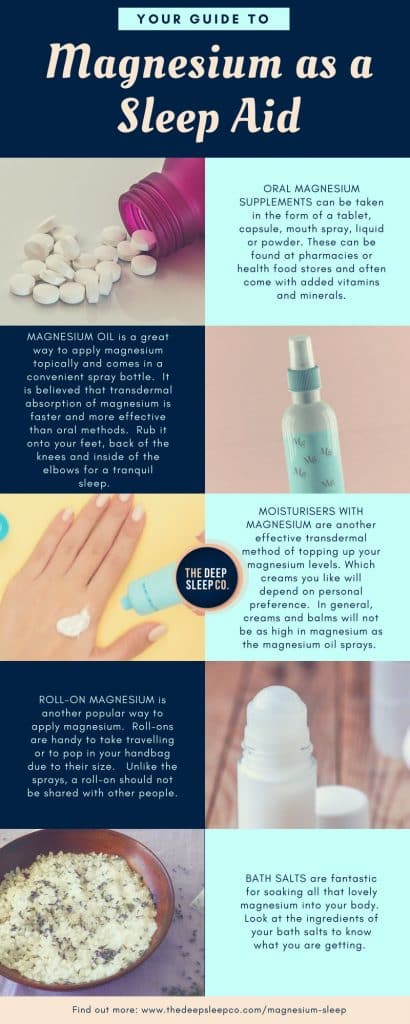Have you ever tried everything imaginable to get a good night’s sleep and still find yourself staring at the ceiling at night? If so, you might be asking yourself, “Does magnesium make you sleepy?” It’s a question many people ponder as sleep challenges become more prevalent in today’s fast-paced world. Magnesium is a mineral often overlooked, yet it plays a pivotal role in numerous bodily functions, including sleep. Let’s explore whether magnesium could be the missing piece in your quest for restful slumber.

Learn More About Magnesium Supplements
Understanding Magnesium and Its Role in the Body
First, it’s essential to understand what magnesium is and why it’s so important for our bodies. Magnesium is a vital mineral that contributes to over 300 biochemical reactions. It’s involved in muscle function, heart rhythm, bone integrity, and nerve health, among other things. The average adult body contains about 25 grams of magnesium, primarily housed in the bones, muscles, and soft tissues.
Importance of Magnesium
The significance of magnesium extends beyond sleep. It helps maintain normal muscle and nerve function, keeps the immune system strong, regulates blood glucose levels, and increases energy production. As you consider whether magnesium can help you sleep, remember it is involved in more than just closing your eyes at night.
How Magnesium Impacts Your Sleep
Magnesium’s role in sleep becomes more apparent when you dissect how it affects the nervous system. It interacts with neurotransmitters and plays a part in the regulation of melatonin, which guides the sleep-wake cycle.
Interaction with Neurotransmitters
Magnesium contributes directly to the synthesis of neurotransmitters that relax the nervous system. One such neurotransmitter is GABA (gamma-aminobutyric acid), which is known for its calming effects. When GABA levels are low, it becomes challenging to relax and fall asleep. Magnesium aids in the binding to GABA receptors, facilitating this relaxation process.
Regulation of Melatonin
Melatonin, often dubbed the “sleep hormone,” is crucial in regulating your circadian rhythm. Magnesium helps to regulate the body’s production of melatonin, thereby influencing how you fall asleep and wake up. By ensuring you have adequate levels, magnesium enables these hormones to function optimally, potentially easing sleep issues.
Can Magnesium Make You Sleepy?
The phrase “does magnesium make you sleepy?” implies some initial confusion: is it a direct sleep aid or merely supportive of general wellness? The answer lies in its multifaceted role in promoting relaxation, reducing stress levels, and supporting immune functions—all of which contribute to improved sleep quality.
Natural Sleep Aid
Magnesium doesn’t sedate you; rather, it creates the conditions for better sleep. By ameliorating symptoms of anxiety and stress and by reducing insomnia, it acts as a natural sleep aid for many individuals.
Stress and Anxiety Reduction
Concerns about the day’s activities can keep you tossing and turning. Magnesium has been shown to reduce stress and anxiety levels, calming your mind before it’s time to rest. With daily magnesium intake, anxiety levels might decrease, ushering in a more peaceful night’s rest.
Evaluating Magnesium Deficiency
Could a lack of magnesium be the hurdle you’re facing in achieving restful sleep? Although not everyone with sleep issues is magnesium-deficient, it’s worth exploring the symptoms and causes of magnesium deficiency because they may contribute to insomnia.
Symptoms of Magnesium Deficiency
While insomnia is one symptom, magnesium deficiency might also present as muscle cramps, fatigue, irritability, or an irregular heartbeat. If these symptoms are familiar, it may be time to consider how magnesium levels affect your health.
Causes of Deficiency
Your magnesium levels might be impacted by factors like poor dietary choices, certain medications, excessive alcohol consumption, or chronic health conditions. If you suspect deficiency, adjusting your diet or consulting with a healthcare professional is advisable.
Recommended Daily Intake
The recommended dietary allowance (RDA) for magnesium differs depending on age, sex, and life stage. Understanding what your body needs can be crucial in determining if supplementation is necessary.
| Age Group | Male (mg/day) | Female (mg/day) |
|---|---|---|
| 1–3 years | 80 | 80 |
| 4–8 years | 130 | 130 |
| 9–13 years | 240 | 240 |
| 14–18 years | 410 | 360 |
| 19–30 years | 400 | 310 |
| 31–50 years | 420 | 320 |
| 51+ years | 420 | 320 |
For pregnant and lactating women, higher amounts might be necessary, and it’s always good to consult a health professional in these cases.

Sources of Magnesium
Before rushing to the supplement aisle, you might consider dietary sources of magnesium. With the right foods, you can bolster your magnesium intake naturally without reaching for pills.
Magnesium-Rich Foods
You’ll find magnesium in foods such as leafy greens, nuts, seeds, and whole grains. Dark chocolate and avocados are delightful sources, providing a treat and nutrition in one package.
Supplements: Yay or Nay?
If diet alone is challenging, magnesium supplements are available in various forms: magnesium citrate, oxide, and chloride, each with unique absorption qualities. Discussing these options with a healthcare provider ensures that you’re taking them correctly and in the appropriate dose.
Potential Side Effects of Magnesium Supplementation
It’s crucial to approach magnesium supplementation with caution. While it might seem like an easy solution to add more, there could be adverse effects if you overdo it.
Common Side Effects
You might find that excess magnesium supplements lead to digestive issues such as diarrhea or nausea. These symptoms can usually be managed by adjusting the dosage.
Interaction with Medications
Magnesium can interact with certain medications, potentially decreasing efficacy. It’s valuable to be aware of these interactions, especially if you are taking drugs for chronic conditions.
How to Supplement Safely
Always begin with a lower dose and gradually increase it if needed. Aim to get most of your magnesium from dietary sources, turning to supplements only when necessary and as recommended by a professional.

Tips for Improving Sleep with Magnesium
Once you’ve evaluated whether magnesium could be helpful, there are several considerations and tips to optimize its benefits for sleep.
Timing of Supplementation
Consider taking magnesium in the evening. Since magnesium promotes relaxation, incorporating it into your nighttime routine may enhance its effects on sleep.
Combination with Other Sleep Practices
Pairing magnesium with good sleep hygiene practices, like consistent sleep schedules and a gadget-free bedroom, bolsters its effectiveness. Combining magnesium with practices such as meditation or warm baths further increases relaxation moments before bed.
Complementary Nutrients and Supplements
Magnesium works well alongside other nutrients that enhance sleep quality. Combining magnesium with low doses of melatonin, vitamin D, or calcium could further assist in the quest for better sleep.
Frequently Asked Questions About Magnesium and Sleep
Can you take magnesium every day?
Yes, taking magnesium daily is generally safe when adhering to the RDA. However, safe daily intake involves monitoring the form and quantity of your intake, especially when supplements are involved.
How quickly does magnesium work for sleep?
Improvements might be noticeable after a few days to several weeks. Factors like your baseline magnesium levels and overall health can influence how quickly you notice changes.
Is it possible to take too much magnesium?
An excess of magnesium, particularly in supplemental form, can lead to adverse effects. Symptoms of magnesium overdose include digestive problems, confusion, and in severe cases, irregular heart rhythms.

Final Thoughts on Magnesium’s Role in Sleep
So, does magnesium make you sleepy? While magnesium may not be a direct sedative, it certainly fosters an environment conducive to improved sleep. From its interaction with essential neurotransmitters to its role in stress reduction, magnesium emerges as a non-invasive, holistic option worth considering in your sleep toolkit.
By understanding the role and benefit of magnesium, pleasant dreams may no longer be elusive. Evaluate your magnesium levels, embrace dietary sources, and remain open to combining magnesium with other sleep-enhancing practices. Remember, as you journey toward restful nights, a consultative partnership with healthcare professionals is your ally in nuanced matters of health like these.
Discover How Magnesium Can Help You Sleep
